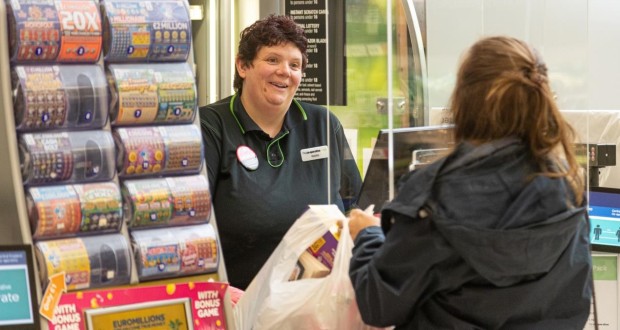The Wellbeing Guide has been put together in collaboration with the What Works Centre for Wellbeing to give retailers practical steps to take.
It aims to help keep staff happy and healthy, with a good work/life balance, and therefore improve staff retention as well.
ACS chief executive James Lowman said: “Convenience stores operate at the heart of our communities, offering local, flexible and secure jobs to hundreds and thousands of people across the UK.
“Now more than ever, it is vital that we turn our attention to the wellbeing of our staff to ensure convenience stores are positive places for colleagues to work and for customers to visit.
“We’re encouraging retailers to take a proactive approach to workplace wellbeing and we have developed this guidance to provide our sector with actionable steps that can be implemented within stores to support staff and maintain a happy, healthy and productive workforce.
“From the examples used in the guide, and the results of our colleague survey, we know our members are getting a great deal right in promoting wellbeing.
“This guide pulls together that good practice and aims to spread it throughout the sector.”
The guide’s case studies include the Lincolnshire Co-op, which monitors staff hours and contacts those who are working more than they should to understand why.
It also includes Bestway’s efforts to help its staff with their finances, both with bonuses and by offering tools for colleagues to manage finances and manage debts.
Further case studies include forecourt retailer Applegreen’s efforts to promote community engagement, and Sewell Group’s policy of developing skills and promoting only existing staff members into supervisory and management roles.
Nancy Hey, executive director of the What Works Centre for Wellbeing, said: “The quality of our job matters for our wellbeing, so maximising the conditions that help us thrive in the workplace is really important.
“We are pleased to have contributed our evidence on what works to improve workplace wellbeing to this excellent guide.
“We hope it will support local store owners who have a vital role in serving their communities, never more so than over the last 18 months, as they have also had to adapt to make sure that they can continue to do this while keeping their colleagues and customers safe.”
Launching the guide earlier today, Lowman said: “The convenience store sector does a great job in promoting wellbeing, just by being there.” In serving its customers within their local communities, it was helping to address problems such as loneliness, he said.
But the last 18 months had highlighted the needs of staff, customers and communities more starkly than ever.
ACS public affairs manager Steve Dowling said happy staff would help deliver additional customer spend and loyalty by providing better customer service. “Good wellbeing is good business,” he said.
It could also help cut costs by reducing absences and sick pay. “Wellbeing should become part of everyday store management and this guide is about how you can achieve that in a small store environment,” he said.
While wellbeing had always been important, Covid-19 had put retailers and their staff under “significant” additional pressure, Dowling said.
This included coping with unprecedented demand and staff absence levels that peaked at 30% during the height of the pandemic, as well as a “dramatic” increase in levels of violence and abuse.
Independent retailer Harj Dhasee, who runs stores in Gloucestershire and Warwickshire, said what had become clear to him during Covid was the importance of holding regular one-to-one meetings with staff to find out how they are coping.
He advised retailers not to necessarily try to fix people’s problems, but said it could often be important just to listen.
If retailers or their staff were feeling under stress, he said, it was vital to take four or five days off in order to recharge their batteries and come back rejuvenated, something he had done himself earlier this year.
But he conceded that, as a retailer, his work/life balance was poor. “My life is unbalanced. There’s so much planning to do, you just don’t have time to disconnect. Your mind is always ticking over.”
Lowman said: “This is a hard-graft business; there’s no getting away from it. Most retailers are working 60-plus hours a week and that number has gone up during the pandemic.”
The full guidance is available to download at: https://bit.ly/ACSwellbeingguide
 Talking Retail Grocery and product news for independent retailers
Talking Retail Grocery and product news for independent retailers






